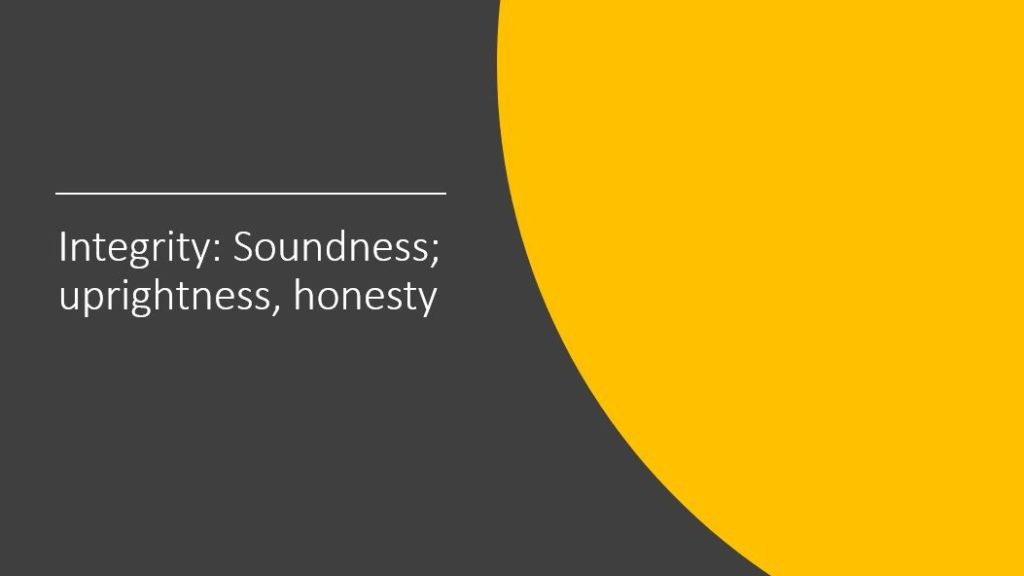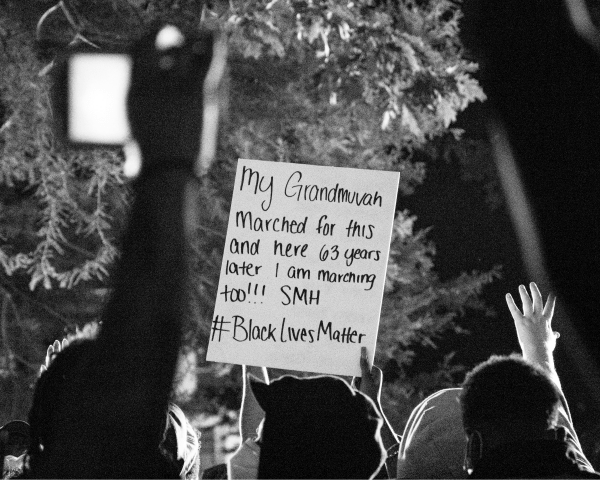Working from home has been a necessity during the pandemic and it can be expensive. Maybe public policy makers need to think more carefully about how essential services are defined in a public health crisis.

Black Lives Matter: Does silence signal complacence in public libraries?
I have been waiting for a statement from my local library on the recent protests aimed at confronting systemic anti-black racism in our North American society and across the Western world. It has been weeks and I am still waiting. Why does it matter to me if volunteers and staff at my community library think black lives matter? Because I expect library leaders to act with integrity and show a willingness to be on the right side of history.
Communities across the continent are making a clarion call to openly confront systemic anti-black racism in Canada and the United States. This call is loud, consistent and impossible to ignore.
As a black female library job seeker, I expect libraries to make an open statement on this issue because they are a community serving organization. As an act of integrity, I would like leaders in these organizations to reassure me that they will protect my physical safety during my interactions with their personnel. I think that it is a mistake for libraries to be silent at this time, while other public serving institutions are making their stance known. At the very least, it is a missed opportunity for public libraries in Ontario to be on the right side of history in the making.

Is silence a statement that “all lives matter?”
Integrity is about being honourable, honest and respectful. So a public statement from the Board and staff who operate my local library would be a clear signal that they are staying true to core values of North American librarianship: access, diversity, and inclusion. As a library user, I would like to know that the members of the administration are not just interested in my tax dollars.
I am surprised that I have not heard a formal statement from leaders of the public libraries in my area because I know that public libraries are very supportive of diverse groups, although I am aware of policies to ensure that staff and programming do not favour any one group over another. I wonder then if the collective philosophy of public libraries leaders here in Ontario supports the “all lives matter” approach to the issue of systemic anti-black and anti-indigenous racism? Comparative suffering, i.e., thinking that one person (or one group’s) suffering should be seen relative to the suffering of others, is highly problematic. I agree with comedian Dave Chappele when he says comparative suffering is a pointless game. All races and genders of people have suffered throughout history. The fact that black people are calling out our oppression should not be seen as a competition for racial supremacy.
Black people in western societies are asking for social justice and equality. We are not looking for special favors because we are black. We are saying that we have been getting special fatal treatment by the police in North America because we are black and it is time for it to stop, please. I did not watch the video of Mr. Floyd being murdered nonchalantly by a person of privilege wearing a police uniform and until now I have reserved my opinion on social media regarding his death. Why have I been silent? As Dave Chappelle said in 8:46, I am tired of explaining to non-black people the obvious atrocity of these acts of injustice. In addition, I am silent because I am still looking for work and I do not want any potential employers to think I am a black supremacist when I am simply a human being with a conscience highlighting what I see to be the unjust treatment of a set of people who share our world.
However, my silence so far on social media should not be mistaken as complacence or agreeing with views such as those of Candace Owens that black people are making a martyr of a criminal again. Even Ms. Owens agrees that Mr. Floyd did not deserve to die like that. I disagree with Ms. Owens because Mr. Floyd did not ask to be a martyr, the only thing he asked for was some customer service from the attendants at Cup Foods. It is easier for the world to see when a police officer goes too far with their exertion of power dealing with racialized persons than it is for the world to see racial injustice that occurs in boardrooms and classrooms away from body cameras and hidden behind confidentiality agreements. That in my opinion is the reason why black people have mostly the extreme cases of police brutality to show as proof of the continued existence of racism and the need for more work to be done to level the playing field. Therefore, it is right to make use of these opportunities of police brutality to call for widespread changes. Community serving organizations such as libraries should use this opportunity to examine their policies for dealing with issues involving racialized minorities, security personnel and the potential use of excessive force.
How do we take action during a pandemic?
I am not suggesting that librarians (or others) should be marching and taking a knee. Last month, I took a poll on MSN that asked if it was appropriate for Prime Minister Justin Trudeau to attend a large crowded Black Lives Matter protest where social distancing was not happening during the COVID-19 pandemic.

My answer this question was that “I am not sure” because I don’t know whether he should have attended or not. I am still following the directives of public health officials by avoiding crowds of more than 10 people. However, I understand that he is the leader of our nation and leaders are expected to do the right thing as an example for others to follow. I opened a fortune cookie that day that said these words of wisdom: “For a good cause, wrongdoing may be virtuous.” So, attending a public march during a health crisis may not be so bad but it is not the only way to protest against racism.

There are other ways to be vocal and make change. I keep thinking about the fact that Mr. Floyd was patronizing Cup Foods in Minneapolis when they called the police on him for a suspected counterfeit $20 which ended in his death by the responding officers. Since then I have been researching local black-owned businesses to support. I do not want to spend my hard earned cash in places where people are willing to call the police trivially and risk the lives of people who look like me.
Likewise, I am peeved to see some people on social media sharing Black Lives Matter posts when I know their attitudes towards people of colour in real life. As a protest banner from my local community reads, “It is not enough to just post on social media!” I believe that to act with integrity, we need to do the right thing in our everyday lives because our daily actions are more important than just repeating slogans.
Making a difference every day
So, if we are going to make a difference every day, what can all of us do to prevent more incidents like this? What can library managers and staff do? Library leaders have lots of options for supporting real structural change. They can be more than just silent observers. For example:
- They can ensure that hiring policies are fair and equitable.
- They can create community engagement programs to bridge the communication gap between police and black and indigenous communities.
- They can provide services that help black families and businesses become pillars of the community.
- They can create policies that safeguard the physical well being of all patrons.

At least my local library posted on Facebook a booklist of authors who speak on social justice issues concerning the black community. So they are not blind to the current dialogue and public protests but library leaders in my geographical region have still not said much. In contrast, we can’t miss the words painted on the streets leading towards the U.S. president’s library. Clearly, these words read BLACK LIVES MATTER. Such a strong public statement reflects the mood of the people in the communities libraries serve right now. It is a bold act of integrity and it’s message is true because all lives do not matter if some lives are overlooked.
#BlackLivesMatter photo by Koshu Kunii on Unsplash.
Fortune cookie photo by Rhea Smith
Rhea Smith graduated from the MLIS program at the University of Western Ontario in June, 2019. She has worked in government, academic, public and law libraries. Rhea can be reached at rsmit273@uwo.ca and/or at linkedin.com/in/rhea-smith-61952525/.

